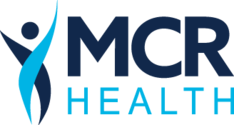A concern many women have today is developing breast cancer. We wanted to discuss some of the risk factors associated with developing breast cancer.
In this article, you will learn the different types of factors that increase and decrease your risk of developing breast cancer.
Types of Breast Cancer
Although few people may realize it, there are many different types of breast cancers, and they’re primarily defined by where they are located on the breast.
The American Cancer Society explains the different types of breast cancer and where they start.
- Ductal cancers: Cancer in ducts that carry milk to the nipple
- Lobular cancers: Some start in the glands that make breast milk
- Phyllodes tumors: A rare form of breast cancer that starts in the connective (stromal) tissue
The type of breast cancer also refers to if cancer can spread or not. The American Cancer Society explains that insitu breast cancer occurs in the milk duct and doesn’t spread. Cancer that has spread to the surrounding tissues is known as invasive breast cancer.
There are two types of risk factors a doctor will take into consideration: lifestyle risk factors and risk factors that can’t be changed.
Risk Factors That Cannot Be Changed
Unlike lifestyle risk factors such as drinking or smoking, there are some factors that can’t be changed.
People experiencing these risk factors do not necessarily develop the disease; however, they are considered predictive in determining how high a patient’s risk might be.
- Being a woman: Althoughthere are cases in which men develop breast cancer, generally women are at a higher risk for developing breast cancer.
- Getting older: It is more common for women who are over the age of 50 to develop breast cancer according to the CDC.
- Family history: Most women who are diagnosed with breast cancer do not have a family history of the disease. However, women who have a close relative do have a higher risk of breast cancer developing. These close relatives are called first-degree, relatives that fall into this category include mother, sister, and daughter.
- Height: There is evidence that women who are taller have a higher risk of breast cancer than women who are shorter. While it is unclear why height correlates with higher risk, it may have something to do with hormones and genetics.
- Dense Breast Tissue: Women who have dense breasts on a mammogram have a higher risk of developing breast cancer. The American Cancer Society found that women with more dense breasts are at risk 1 1/2 to 2 times more than women with average breasts.
- Starting menstrual cycle early: Women who started experiencing a menstrual cycle early especially before 12 years have a slightly higher risk of developing breast cancer. This increase could be due to the longer exposure to the hormones of estrogen and progesterone.
- Going through menopause after the age of 55: Women who go through menopause after the age of 55, just like starting their menstrual cycle earlier more time before menopause contributes to the exposure to hormones over a lifetime.
These risk factors cannot be changed, but there is hope! Knowing one’s risk factors can be the motivation to perform self-examinations to determine if there are any issues.
While there may be factors that can’t be changed, there are some habits and lifestyle choices that can be made to fight against breast cancer.
Lifestyle Risk Factors
Although some daily habits may seem harmless, they could be increasing the risk of breast cancer.
The American Cancer Society offers a list of lifestyle risk factors that contribute to the development of breast cancer. But by making lifestyle changes, there is hope to reduce the likelihood of a cancer diagnosis.
- Drinking alcohol: The American Cancer Society research has found that the consumption of alcohol contributes to 6% of all cancers and 4% of cancer-related deaths in the United States. Breast cancer is on the list of cancers that have been caused by drinking alcohol.
- Being overweight or obese: Being overweight after menopause may increase the likelihood of developing breast cancer. It is important to note that the link between being overweight and breast cancer is still being researched. Being overweight can cause other health complications aside from breast cancer. That is why it is important to maintain a healthy weight through diet and exercise.
- Not being physically active: Evidence shows regular physical activity can help reduce the chance of developing breast cancer. The CDC recommends adults to get 150 minutes a week. This can be broken up into 30 minutes a day to help promote overall health. Being active can be anything the important thing is moving. Parents can get their exercise while chasing their children around.
- Not having children: According to The American Cancer Society women who have not had children before the age of 30 have a slightly increased chance of developing breast cancer. There is a complexity around pregnancy and breast cancer, which is focused on the production of hormones in the body. Pregnancy involves a lot of hormones, after pregnancy parents need to make decisions. One of these decisions is whether to breastfeed the child or not.
- Not breastfeeding: There have been studies to show breastfeeding may slightly reduce the risk of breast cancer. The studies are still in development, Healthline has composed a list of some of the health benefits of breastfeeding. The desire not to become pregnant is one reason some women choose to use birth control.
- Birth control: Some birth control methods that use hormones may increase risk. These birth control methods include oral contraceptives, birth control shots, and birth control implants.
These lifestyle risk factors can luckily be changed or modified to help reduce your risk of developing breast cancer. By making small changes to life now, it can take some of the anxiety away from the later years by acting now.
Risk factors do not necessarily mean an automatic diagnosis, and with early detection, a road to recovery is possible with a great team behind patients.
How We Can Help You
At MCR Health, our team is made up of qualified and compassionate doctors and advanced practice providers who can help patients who have been diagnosed with breast cancer get back to doing what they love.
Our team is here to help patients win their battles against breast cancer. If you would like to learn more, please contact us to schedule an appointment!

